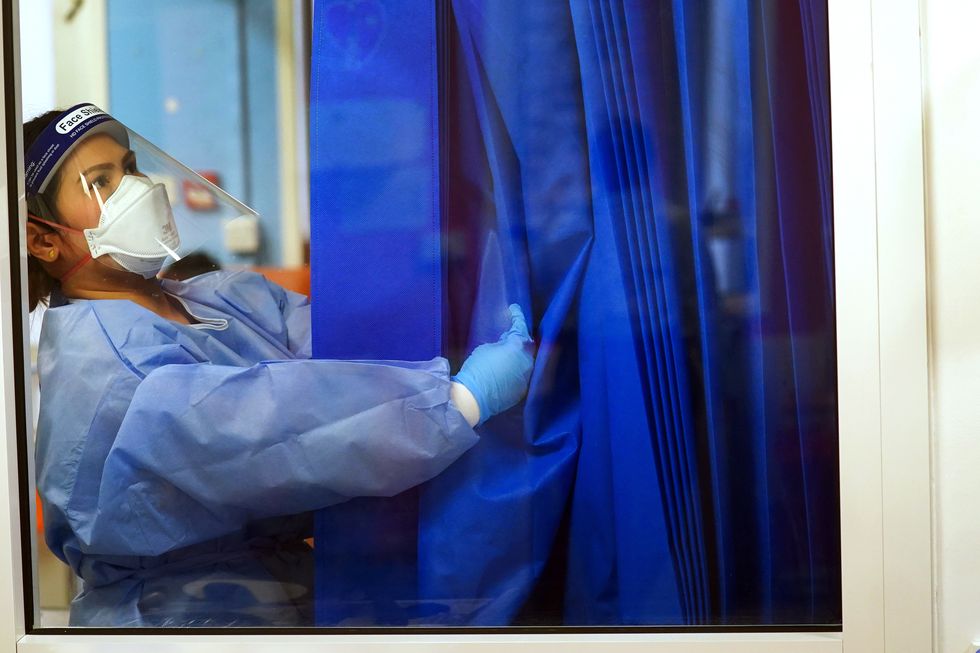Don't Miss
Most Read
Trending on GB News
A study suggests that catching Covid-19 could age your brain by 20 years.
The research, carried out by University of Cambridge and Imperial College London, also found that the virus could knock 10 points off your IQ.
While those who were admitted a hospital with Covid, could suffer brain damage that lasts for more than six months.
Those patients may find it hard to get their words out, have a shorter attention span or taking longer to process information.
Catching Covid-19 could age your brain by 20 years, a study suggests
Yui Mok
Those who were admitted to hospital could suffer brain damage that lasts for more than six months
Victoria Jones
The study looked at 46 brits who were hospitalised by the virus between March and July 2020.
It found that they scored worse on brain tests when compared to the average scores of 66,008 members of the general public.
Researchers estimated that the magnitude of cognitive loss is similar on average to that sustained with 20 years ageing.
Professor David Menon, an anaesthetist and brain expert said: “We followed some patients up as late as ten months after their acute infection, so we were able to see a very slow improvement.
“This is at least heading in the right direction, but it is very possible that some of these individuals will never fully recover.”
Professor Adam Hampshire from the Department of Brain Sciences at Imperial College London, the study’s first author, said: “Around 40,000 people have been through intensive care with COVID-19 in England alone and many more will have been very sick, but not admitted to hospital.
“This means there is a large number of people out there still experiencing problems with cognition many months later. We urgently need to look at what can be done to help these people.”
The patients’ scores and reaction times began to improve over time, but any recovery was “at best gradual and likely to be affected by a number of factors” the researchers said.
These factors included “illness severity and its neurological or psychological impacts.”












